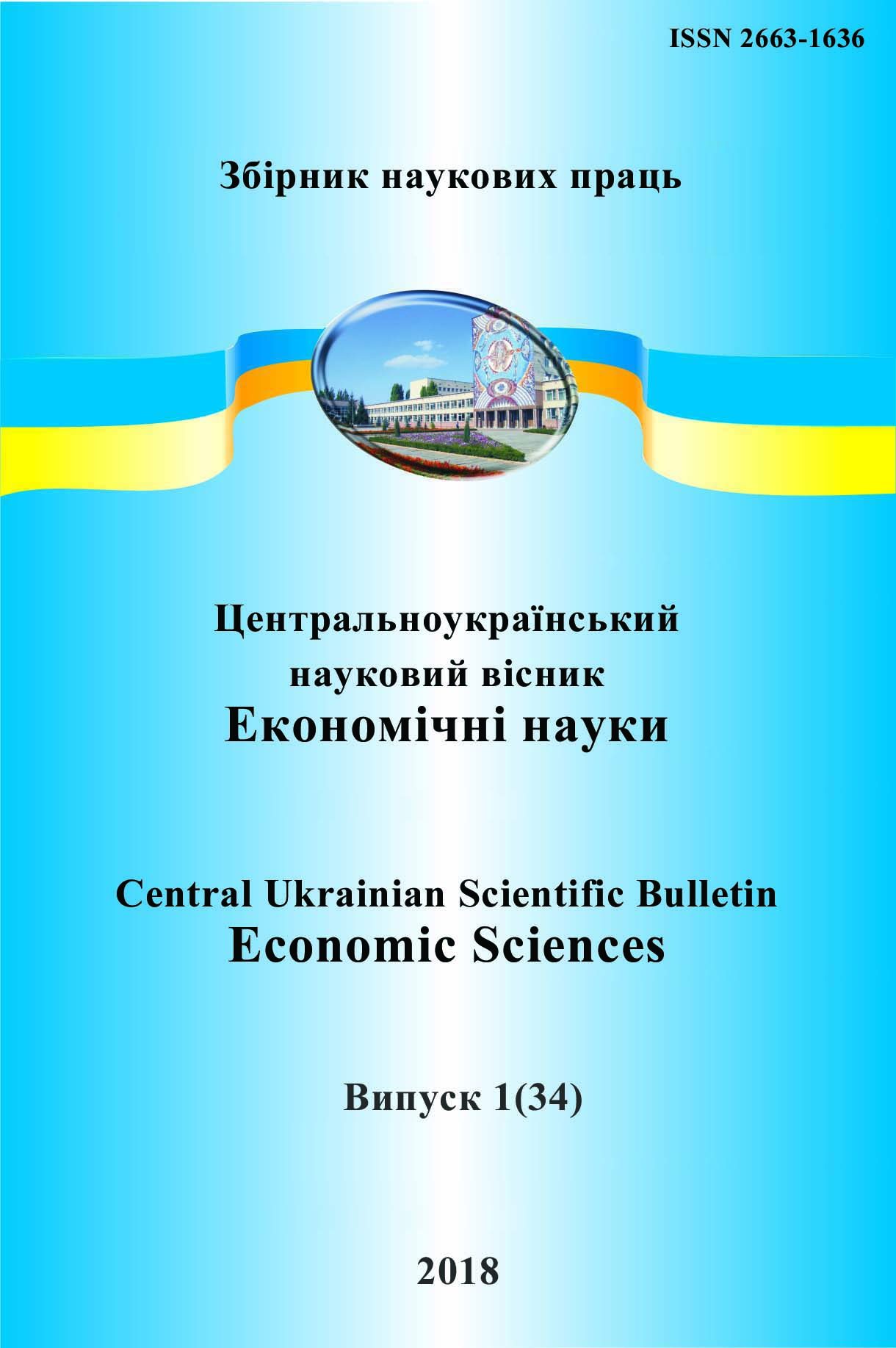Теорія та практика формування соціального капіталу науково-освітнього кластеру регіональної інноваційної екосистеми на базі технічного університету
Theory and Practice of Regulating the Reputation Social Capital of the Scientific and Production Cluster of a Regional Innovation Ecosystem on the Basis of a Technical University
Author(s): Yurii Malakhovskyi, Ali Kanso, Hani Mohammad HaiduraSubject(s): Social Sciences, Economy, Education, National Economy, Sociology, Human Resources in Economy, Socio-Economic Research
Published by: Центральноукраїнський національний технічний університет
Keywords: social capital; research and production cluster; regional innovation ecosystem; reputational capital; organizational and economic mechanism
Summary/Abstract: The article is devoted to the study of theoretical aspects and practical means of increasing the assets of social capital in the process of forming a scientific and educational cluster with a technical university as a “creative core” as an element of a regional innovation ecosystem. The priority value of social capital in the formation of a sixth technological structure of the national economy is described in detail. Particular attention is paid to the economic model of commercialization of R&D activities and the provision of educational services, as well as the purposeful increase of the reputational capital of the regional technical university, the modern form of which is the initiative formation on the basis of its scientific and educational cluster in the structure of the regional innovation ecosystem.The use of social capital is considered in the context of reducing the “friction forces” in the economy, transaction costs, saving money from the restructuring of institutional actors and organizations based on a clear specification of immutable property rights, creating organizational structures that ensure their effective exchange, comparison and cost savings, which occur during this process.The peculiarities of social capital’ formation are studied under conditions of active use in the process of post-industrial national economy structuring’ models of scientific and educational clusters’ formation as effective forms of management of innovative activity, which ensures the emergence of a synergistic effect on the basis of the unification of efforts and competencies of its participants (enterprises, research and educational institutions, state authorities, service companies, intermediaries, etc.) that operate with the aim of creating, implementing and commercialization of the innovative product in order to achieve competitive advantages in the global market.The problem of quantitative assessment of social capital is investigated in the context of structuring the analysis at the macro, mesa and microeconomic levels of management. Market actors are considered as actors of activity, theoretical models are formed within the framework of the development of certain aspects of neoinstitutional theory. The idea of creative association of disparate approaches to the formation and development of social capital in the form of generalized trust is realized. Such trust arises in the process of purposeful creation of stable participants, internal factors of development and the nature of the trajectory of mesosystem development in the structure of the national and regional economy. Additional advantages of regulation of collaborative scientific and educational clusters within the framework of regional innovation ecosystems are the possibility of using strategic planning tools
Journal: Центральноукраїнський науковий вісник. Економічні науки
- Issue Year: 2018
- Issue No: 1 (34)
- Page Range: 269-280
- Page Count: 12
- Language: Ukrainian

